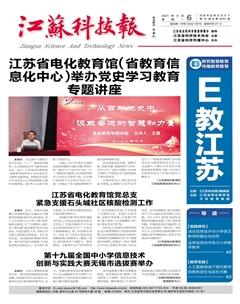《教育中的人工智能:学习速度的变化》(一)
Product by UNESCO IITE (The UNESCO Institute for Information Technologies in Education)聯合国教科文组织教育信息技术研究所
该报告为UNESCO IITE新推出的“教育的数字化转型”(Digital Transformation of Education)系列出版物的第一期。据悉,“教育的数字化转型”系列将包括政策简报、分析报告和反思论文,以探讨由于技术的使用及其对教育和人类生活其他领域的影响,教育领域正在发生和正在出现的根本性变化。
Executive Summary
AI will play a pivotal role in helping to realize the promise of personalized learning —the ability to tailor the delivery, the content and the pace of learning to the specific needs of each individual student. The ability to ingest data from multiple data sources, interrogate that data and to derive insights — using tools such as predictive analytics and machine learning — is what makes AI such an exciting advancement in education technology.
For students, AIs ability to make connections between disparate data sources will help to identify areas where real-time interventions or additional assistance may be required. As a result, AI makes it possible to devise a tailored or individualized learning pathway for each student which is specific to them and designed to accommodate their strengths, weaknesses, talents and challenges. Advanced analytics and machine learning also hold significant potential for the development of social and emotional learning skills as they allow educators to personalize instruction and to analyse both qualitative and quantitative data to assist with a students mastery of these skills. By enabling students to learn at any time, in any place, technology is also helping to democratize education and offers learners currently unable to attend a physical school the opportunity to achieve their full potential.
The effective use of AI, Data & Analytics and Machine Learning can enable educators to deliver engaging, immersive educational experiences. The promise of AI for teachers lies in its ability to increase the effectiveness of their teaching and to assist them in providing the ideal conditions in which their students can learn and grow. By analysing all of the available data sources and generating insights to guide in the creation of personalized learning pathways, AI can save educators significant amounts of time that would otherwise have to be spent studying and collating such data. Data and Analytics can also support effective teamwork across a school. Subject teachers, department heads, counselling and welfare services and school leadership can coordinate efforts and collaborate in the building and delivery of individualized support programs based on a shared set of learnings and indicators.
Despite the promise of AI, significant challenges remain, particularly in regard to equity of opportunity. 43% of the worlds population still do not have access to the internet, and an estimated 40% of people have never once been online. Learners who have limited access to the information required to assist them in their studies and the ability to generate and share electronic data, may be disadvantaged when it comes to the building of personalized learning pathways which adequately identify and address their needs.
If all learners are to reap the rewards of AI in education, regulation and ethical frameworks will be required. How can we ensure that gender, racial, socioeconomic and ability biases are not introduced at the programming level? How can we ensure that social and cultural stereotypes are not promulgated? How can we ensure that all learners, regardless of where they live, have the same access to the benefits which will accrue? Given the power and influence such technologies will come to have in shaping the education — and by extension the opportunities and potentially the values of learners — transparency and oversight will be required to ensure that AI-enabled technologies conform to and strengthen fundamental human rights. AI technologies are continually evolving — emergent technologies such as Cognitive Services, Virtual, Mixed and Augmented Reality and the Internet of Things are reshaping our world and providing all stakeholders in education with opportunities to advance teaching and learning, and ethical challenges which will need to be addressed.
AI will play an important part in tackling the next great challenge being offered to education technologists: how to support personalized assessment. Current forms of assessment are seldom aligned to the skills that will be demanded of students when they enter the world of work. Multiple-choice, long- and short-form examinations can serve to evaluate some of the higher-order thinking skills that will be required in a 21st century environment—recall, comparison, analysis and inference—but soft skills, ‘people skills, moral character, teamwork, collaboration and the ability to work effectively as part of a team are difficult to evaluate using these traditional forms.
AI will form part of the foundation for the educational experiences and opportunities students will enjoy in the coming decade. AI in education is already delivering real benefits and will prove a powerful catalyst for change.
译文
摘要
有效的个性化学习将成为现实,人工智能发挥了核心作用——让系统能根据每个学生的特定需求定制学习的传输方式、内容和速度。能从多个数据源获取数据、查询数据并得出见解(使用预测分析和机器学习等工具),是人工智能在教育技术领域取得如此惊人进步的原因。
对学生来说,人工智能在不同数据源之间建立联系的能力,将有助于确定那些可能需要实时干预或额外援助的领域。因此,人工智能可以为每个学生设计一个量身定制的或个性化的学习路径,该路径面向学习者设计,旨在适应他们的优势、劣势、才能和困扰。先进的分析技术和机器学习对社会情感学习技能的发展也具有巨大潜力,因为它们允许教育者个性化教学,并分析定性和定量数据,以帮助学生掌握这些技能。通过让学生随时随地学习,科技助力于教育民主化,并为目前无法上体育学校的学生提供充分发挥潜力的机会。
有效使用人工智能、数据分析以及机器学习,可以让教育者营造引人入胜的沉浸式教育体验。人工智能对教师的好处在于它能够提高教师的教学效率,帮助教师为学生提供学习和成长的理想条件。通过分析所有可用的数据源并产生见解,指导创建個性化学习路径,人工智能可以为教育工作者节省大量的时间,否则他们将不得不花费时间研究和整理这些数据。数据分析还可以支持整个学校团队的有效合作。学科教师、部门负责人、咨询和福利服务机构及学校领导可根据一些共享的经验和指标,在建立和提供个性化支持项目方面进行协调和协作。
尽管人工智能前景广阔,但仍然存在重大挑战,特别是在机会公平方面。世界上43%的人口仍然无法访问互联网,大概有40%的人从未上过网。学习者无法获得帮助他们学习所需的信息以及生成和共享电子数据的能力,在建立个性化学习路径以此来充分识别和满足个人需求时,他们可能处于不利地位。
如果想让所有学习者都能在教育中享有人工智能带来的益处,监管和道德框架必不可少。我们如何确保在编程层面不会引入性别、种族、社会经济和能力等偏见?我们如何确保社会和文化中老一套的观念不被传播?我们如何确保所有学习者,无论身处何地,都有同等机会去获得人工智能将带来的好处?考虑到此类技术在塑造教育方面的力量和影响力,以及学习者的机会和潜在价值,未来将需要透明度和大力监督,以确保人工智能技术符合并加强基本人权。人工智能技术在不断发展——认知服务,虚拟、混合和增强现实以及物联网等新兴技术正在重塑我们的世界,并为教育领域的所有利益相关者提供推进教学的机会,需要应对解决一些伦理挑战。
人工智能将在解决教育技术人员面临的下一个重大挑战上发挥重要作用:如何开展个性化评估。当前的评估形式很少与学生进入社会工作时所需的技能保持一致。多项选择题、长式和短式考试可用于评估21世纪环境中所需的一些高级思维技能——回忆、比较、分析和推理,但软技能、“人际交往能力”、道德品质、团队合作、协作,以及其他团队部分有效工作所需要的能力,很难使用这些传统形式进行评估。
人工智能将成为学生在未来十年享受的教育体验和机会的基础。教育中的人工智能已经带来了真正的好处,并将成为推动变革的强大催化剂。

